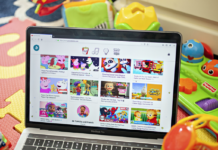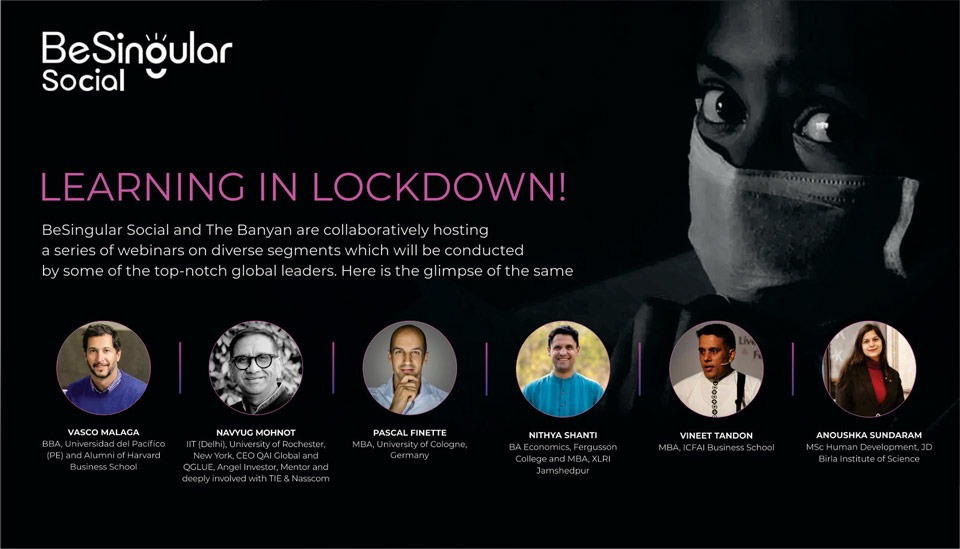In the times of COVID-19, digital presence and life have taken a different turn with increased screen time. Read on to find out how you can turn this bane into a boon.
The last two months have brought a drastic change in everyone’s lives. This change has been so sudden that most of us are yet to accept it. We all learned a new term – Lockdown; not knowing what it meant until it came down upon all of us. While we stay in our homes, our profession and our education have shifted to our mobiles and laptops. Most of the school-going children are attending online classes irrespective of whether they like it or not. Instead of going to school, meeting friends, and playing with them, children are forced to sit in front of smartphones or laptops and attend online classes through video conferencing applications. It was an enjoyable and a novel experience for them because they got “their” smartphones, Ipads or laptops – a so-called new sense of freedom.
The New Normal
Probably unavoidable, the increased screen time of the children justifiably disturbed a lot of parents. Children spent an increased amount of time in front of a screen not only for their daily scheduled classes by their schools but also for downloading class notes, submitting assignments, and doing internet searches – all as a part of their academic engagement. Support tutorials or some extracurricular activities like learning music, dance, etc. also shifted on to the online mode.
Health professionals are professing that the pandemic might last for as long as three years, and the social distancing might become the new normal. Many of us have found out ways to work from home comfortably and peacefully. Schools might reopen after the summer vacation with 30% attendance. So online education is here to stay, and I think it might get more refined in the days to come. However much we might dislike this new mode of work and study, we need to adapt ourselves and use it to our advantage vs. letting it take the lead. As Mary Shelley rightly said, “Invention, it must be humbly admitted, does not consist in creating out of void but out of chaos.”
Knowledge alone does not prepare us for jobs. If it did, we all would be doing something else because most of us have studied something and working on something entirely different. So, it is critical to assess whether the current academic curriculum imparts some essential life skills. Futurists predict that our children would be co-working with robots. Not to mention that they will be working at jobs that haven’t been created yet. Today, more than ever, it is imperative that we empower our kids with the 4Cs of the 21st century –
- Communication
- Critical thinking
- Collaboration and
- Creative Thinking
Communication can be developed considerably using the online forum. For shy students, the online platform allows expressing themselves without the pressure of speaking in front of the entire class. Remote communication with learners across the globe helps students to appreciate different cultures, customs and lifestyles. Critical thinking involves the ability to evaluate arguments and evidence. The multitude of online platforms available today helps students conduct research, collaborate and develop critical thinking. Different perspectives on a subject area of interest are enhanced when assimilation happens from various resources. Online group activities organized by an educator can go a long way in teaching collaboration skills with their peers. Qualities like Team Building, Leadership, Motivation and Empathy gradually develop as the learners interact with the virtual teams. Thanks to the internet, many creative fields have emerged which didn’t exist earlier. Programming for software, Mobile App Designing and development, Podcasting and Robotics are some of the areas the young generation is exploring. It is no surprise that with the help of online platforms and future technologies, many youngsters have transformed their hobbies to their occupation.
The Way Forward
The learning process has undergone a sea change for the past five years. Increased access to the internet through mobiles has changed the world for many industries as well as individuals. Education is not left far behind in this race. Top universities of the world like Stanford, Harvard, Berkeley, MIT, etc. have moved their courses online. These online courses are either available at a meagre price or even free. Disciplined learners can well take advantage of this technology explosion. However, it might come with the caveat of increased screen time. Smartphones can be used to encourage children to cultivate healthy behaviours like exercising regularly, inculcating reading habits, healthy eating, and, of course, learning skills that will be needed in the future. There are various applications these days that will help to remind and track different activities at different times of the day. While we are all aware of the ill effects of this excessive screen time, the best we can do is to brace ourselves for the new transformation and enable children to make the best use of the time by choosing the right content they are exposed to.
As parents and educators, we need to assist children in making intelligent choices so that they are future-ready and can carve a niche for themselves in the fiercely competitive times to come. The positive screen time concept needs to be understood by parents and educators. While addiction to some online games might be controlled, learning some new hobby should be encouraged. Not all screen time can be considered harmful to students. Screen time is something which needs to be smartly and creatively managed by using it as a channel to pick up knowledge and skills for the future.



























